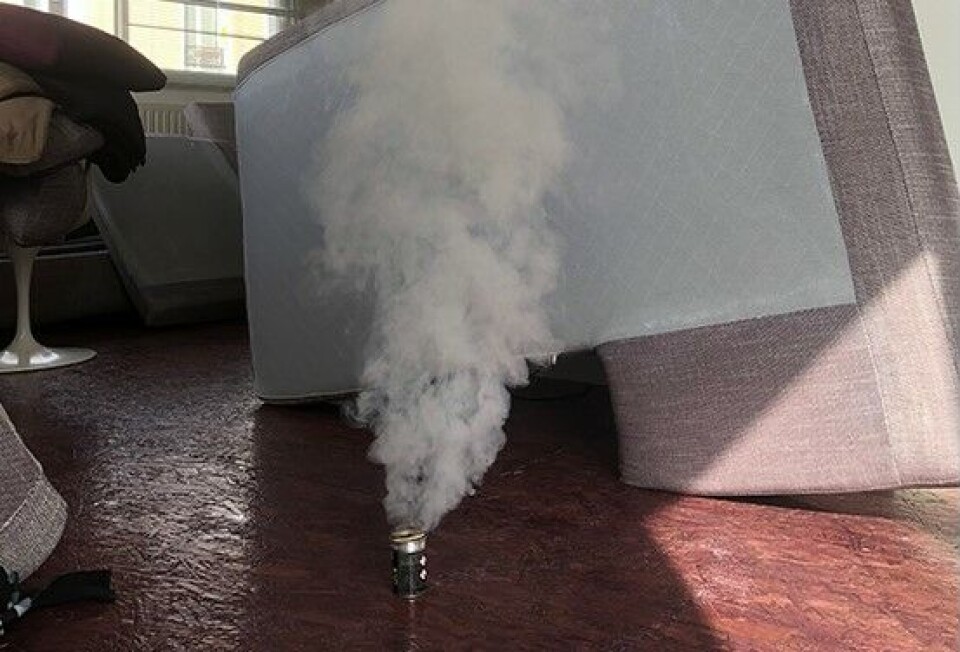-
Spring sees return of Asian hornets in France: Action to take now
The hornets are particularly damaging to bee populations
-
Where are tiger mosquitoes in France as presence increases, and what to do about them
The mosquitoes become active in spring, and are now in 78 of 96 departments
-
Errors to avoid and how to help wildlife as you get your garden in France ready for spring
Gardening with care can make a big difference at this time of year
Insure your French home against bed bug misery for €2 per month
A start-up is offering ‘France’s first bed bug insurance’ and advice on how to avoid scams when trying to get rid of the insects

Each year, bed bugs invade more and more French homes. Almost five million people were affected between 2016 and 2021, according to one survey.
On September 23, the insects forced a boarding school in Lorient to close its dorms for two weeks. After more or less disappearing by the 1950s, bed bugs have been on the rise again since the 1990s, linked to international travel and resistance to insecticides.
With bed bugs come unforeseen bills for hundreds of euros.
Now one firm, Badbugs.fr, has teamed up with IMA Assurances to offer a French first: bed bug insurance.
For €2 per month, it covers treatment worth up to €500, a night in a hotel, advice, and sessions with a psychotherapist. Full details are available at assurance.badbugs.fr.
Bedbugs lead to stress, anxiety and loss of sleep
Bed bugs are not known to spread disease but the bites can be itchy and lead to stress, anxiety and loss of sleep.
Nicolas Roux de Bézieux, who created Badbugs.fr in 2019 after struggling with his own infestation, wants to help people through the psychological trauma of bed bugs.
He said his company tried, unsuccessfully, to convince insurance firms to integrate bed bug cover into assurance habitation contracts, hence the idea for a specific assurance punaises de lit.
Read more: French MPs suggest public service to help with costs of combatting bedbugs
Badbugs.fr puts people in contact with verified professionals – it verifies certifications, examines techniques, and gathers feedback from clients and specialists – and has guides for dealing with the insects.
Scam ‘more or less the norm’
If such a service is necessary, it is in part because scams are “more or less the norm”, Mr Roux de Bézieux said.
An Ipsos study ordered by the website, conducted in August, found that 73% of people who had bed bugs, or other pests such as rats or cockroaches, were dissatisfied with the companies they hired.
“A serious professional will tell you things you don’t want to hear: that it could last several weeks, and you’ll have to treat your clothes and bed linen. “The risk is that you call three companies who say that, and another says they have a miracle solution, and you want to believe them.”
A common complaint is a lack of guidance. “It’s not like an electrician who will come, do the job, and leave. There needs to be a collaboration, there are always things to do in parallel, they must take the time to explain.”
“People who are poorly guided spend 60% more. Often they require more treatments because they don’t take the necessary steps in parallel, or they throw away furniture they didn’t need to.”
An investigation by TV channel M6 in September revealed certain companies charge hundreds of euros to fumigate using sprays which are available online for less than €20.
Hidden camera to expose scammers
M6 used a hidden camera to expose two companies that proposed fumigating a house that had no bed bugs.
Badbugs.fr has guides on how to identify bed bugs, and when to turn to a professional. They say home remedies are unlikely to work beyond the first six to eight weeks.
“A bed bug lays five eggs a day, which take two weeks to hatch,” Mr Roux de Bézieux said. “After six weeks, they become adults and lay eggs themselves.
Often, when you start to see the bugs, that means it’s too late.”
On average, people spend €958 getting rid of bed bugs, according to the Ipsos survey, which includes all costs, such as throwing away furniture.
Mr Roux de Bézieux said this is excessive. A standard chemical treatment should generally cost between €400 and €500, a ‘natural’ insecticide from €550 to €650, and a steam or cryonite treatment from €1,000 to €1,300.
A heat treatment will cost upwards of €3,000. “People often think the €3,000 option works better, but it’s not that. It’s just less hassle as it works the same day and you don’t have to treat your clothes or bed sheets.”
Using an insecticide, on the other hand, means two treatments, a fortnight apart, each time waiting two weeks so the bugs will be enticed to bite you and step through the chemicals. The survey also found people who tried to get rid of pests themselves before turning to a professional spent 29% more.
There is no national scheme to help cover the costs. Some towns offer help, but often only to those who are the least well-off. Paris town hall, for example, will intervene only at the request of a social worker.
The state does, however, have a website offering guidance (tinyurl.com/bedbugsite) and a helpline at 0 806 706 806. It also works with trade association CS3D on its directory of trained professionals, here: cs3d-expertise-punaises.fr.
Above all, “the best way to get rid of bed bugs is for them not to enter in the first place”, Mr Roux de Bézieux said.
If you are returning from a hotel you think may be infested, he says, put your clothes and contents of your luggage into bin bags, and leave them in the freezer for five days.
Related articles
My career change in France was all thanks to a rat problem
French hornet attack: how to spot the insects and treat the stings
They are everywhere: French town suffers severe ant infestation
























